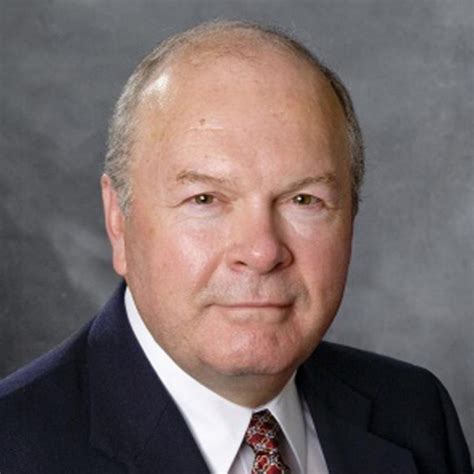A Quote by Albert Camus
If those whom we begin to love could know us as we were before meeting them they could perceive what they have made of us.
Related Quotes
He who had known us before we were even born came to know us infinitely better as he knelt in Gethsemane and as he hung on the cross of Calvary. We come to know those we serve (Mosiah 5:13; compare 1 John 2:3-4). And we certainly come to love and treasure those for whom we sacrifice. Conversely, the depth of the pain we feel in behalf of a loved one is intimately tied to the depth of the love we bear that loved one. Thus only a being filled with infinite and eternal love could perform an infinite and eternal sacrifice.
we all begin the process before we are ready, before we are strong enough, before we know enough; we begin a dialogue with thoughts and feelings that both tickle and thunder within us. We respond before we know how to speak the language, before we know all the answers, and before we know exactly to whom we are speaking.
There is no pain equal to that which two lovers can inflict on one another... It is when we begin to hurt those whom we love that the guilt with which we are born becomes intolerable, and since all those whom we love intensely and continuously grow part of us, and since we hate ourselves in them, so we torture ourselves and them together.
And even if these scenes from our youth were given back to us we would hardly know what to do. The tender, secret influence that passed from them into us could not rise again. We might be amongst them and move in them; we might remember and love them and be stirred by the sight of them. But it would be like gazing at the photograph of a dead comrade; those are his features, it is his face, and the days we spent together take on a mournful life in the memory; but the man himself it is not.
Have you ever felt a potential love for someone? Like, you don't actually love them and you know you don't, but you know you could. You realise that you could easily fall in love with them. It's almost like the bud of a flower, ready to blossom but it's just not quite there yet. And you like them a lot, you really do. You think about them often, but you don't love them. You could, though. You know you could.
God made the world for the delight of human beings-- if we could see His goodness everywhere, His concern for us, His awareness of our needs: the phone call we've waited for, the ride we are offered, the letter in the mail, just the little things He does for us throughout the day. As we remember and notice His love for us, we just begin to fall in love with Him because He is so busy with us -- you just can't resist Him. I believe there's no such thing as luck in life, it's God's love, it's His.
Ah, those were the days…The Dark-Hunters hunted us, we slaughtered them. We made our homes in underground catacombs and crypts where the Hunters couldn’t go without getting possessed. It was an interesting time to be Apollite or Daimon. But that was before we discovered civilization and modern conveniences. Before the human world developed enough to where we could exist at night under the pretense of being one of them. Apollites owning businesses and houses. Daimons playing Nintendo. What is this world coming to? (Thanatos)
Science, by itself, cannot supply us with an ethic. It can show us how to achieve a given end, and it may show us that some ends cannot be achieved. But among ends that can be achieved our choice must be decided by other than purely scientific considerations. If a man were to say, "I hate the human race, and I think it would be a good thing if it were exterminated," we could say, "Well, my dear sir, let us begin the process with you." But this is hardly argument, and no amount of science could prove such a man mistaken.
I have a very close friend who is a brilliant clown, and I always wanted to do a show with him. So I did one year at La MaMa Theatre. I had not done stilts before that show, and I had about two weeks to learn how to do that, and they were just made with off-off Broadway money. The ones that I had in Rogue One were made by [Industrial Light & Magic]. So they were really easy. They were made with actual prosthetic feet on the bottom. They were athletic, in a way. I could run in them. There was a bounce to them that I could use.










































